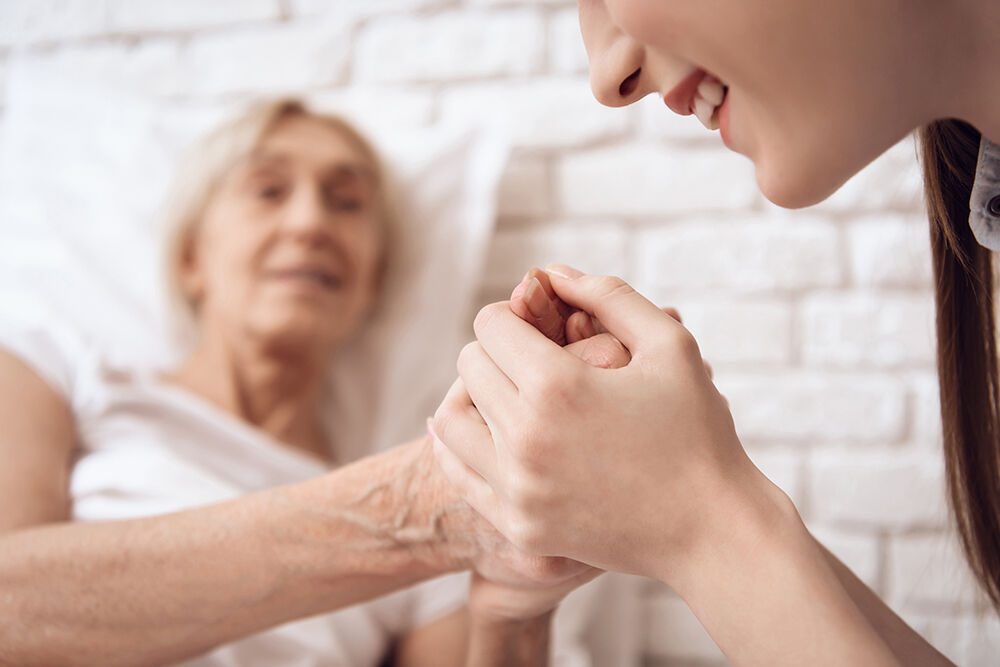Caring for an ageing loved one is an emotional and challenging responsibility, and one of the hardest parts of the process is recognising when it is time to transition from at-home care to full-time care. While part-time care may have been appropriate for your elderly relative, there will be a point where this is no longer in their best interest and full-time care becomes essential for their safety and quality of life.
Recognising the signs that full-time care is required early can help you make informed decisions and ensure they receive the care they need. At Inchmarlo Retirement Village, we have compiled a list of some of the key indicators that your loved one is ready for full time care to help you identify them as soon as possible.
Regular falls and injuries
As we age, our mobility and balance naturally decline. However, if your loved one is experiencing frequent falls, particularly ones that lead to hospital visits or painful injuries , it may be a sign that their physical condition is worsening.
Recurrent falls could be due to a loss of strength, coordination issues, or undiagnosed medical conditions. If they are having trouble moving around their home safely without assistance, full-time care may be necessary to prevent serious injuries and ensure their environment is adapted to their needs.
Signs of loneliness have become excessive
While occasional loneliness is normal, excessive or prolonged isolation can take a toll on an elderly person’s mental and physical health. Loneliness can also worsen cognitive decline and increase the risk of depression, so regular social interaction in a care facility could greatly improve their wellbeing.
If you notice any of the following behaviours, then it could indicate that they need more companionship and support than part-time care can provide:
- Increased phone calls, especially in the evenings or at night
- Withdrawing from family, friends or social activities
- Confusion or agitation in company
- Change in sleeping patterns, particularly oversleeping
- Mood swings
If these behaviours immediately follow the loss of a partner or a beloved friend, then it’s possible they are going through a grieving period and there’s no need for concern. However, if they persist and don’t get any better then discussing options to decrease loneliness is needed.
If you are concerned about a loved one growing lonely, then our blog How to Help an Elderly Relative with Loneliness can give you the toolbox you need to assist them through this time.
They are struggling with personal hygiene
One of the more telling signs that someone is ready for full-time care is their inability to maintain personal hygiene. If your loved one is struggling to bathe, dress, or look after themselves, they may need more help than occasional assistance can offer.
Poor hygiene can lead to infections, skin issues, and further health complications that carers in a care home can easily prevent with daily assistance. Full-time care ensures that these basic needs are met consistently and professionally.
We can aid with:
- Brushing teeth
- Bathing or showering
- Brushing hair
- Getting dressed
- Washing clothes
Opening up a conversation about hygiene can be difficult but it is necessary.
You notice changes in appearance
Alongside personal hygiene, there are other changes in appearance that can alert you that they’re struggling to take care of themself, or perhaps have reached a point in their mental health where taking care of themself is no longer a priority.
This is often one of the most overlooked signs that a loved one is ready for care because changes in appearance occur naturally with age.
However, you should keep an eye on the following as an indicator that their physical or mental health has begun to deteriorate:
- Significant and unexplained weight loss or gain: This can also be a sign of a medical condition, and you should take them to the GP to discuss their options. Your GP may recommend additional or full time care.
- Dishevelled appearance that is out of the ordinary: An unkempt appearance where your loved one would usually otherwise take pride in their appearance is a strong indicator that they no longer can or wish to take care of themself.
- Dirty clothes: Wearing dirty clothes can indicate that they are no longer capable of taking care of themself, but also that they are developing issues with their memory, which should always be taken as seriously as possible.
Mobility is impacting independence
Sometimes, changes in mobility don’t always present themselves as falls.
If your loved one is increasingly using mobility aids like canes or walkers but still struggling to move around independently, it might be time for full-time care.
Limited mobility can make daily tasks, such as cooking, cleaning, or even getting in and out of bed, dangerous. Full-time care provides the physical assistance and support they need to stay safe and comfortable.
Their eating habits have changed
If your loved one usually eats nutritious, home cooked meals but has recently switched to microwaveable dishes or takeaways then they may require additional assistance.
This is usually only a sign that they need part-time or at home care, but it is important to keep an eye on their behaviour if there is a sudden change in diet as they could be struggling with meal preparation, forgetting basic routines, or even losing interest in food.
Poor nutrition can lead to rapid health decline, making it crucial to intervene with appropriate care as soon as you notice their eating habits shifting.
Urinary or bowel issues that they cannot manage on their own
Urinary or bowel incontinence can be a distressing issue for elderly individuals. Not only does it cause discomfort and hygiene concerns, but it can be a source of embarrassment and it’s not uncommon for them to refuse assistance from their children or other family members.
Full-time care provides both practical assistance with incontinence as well as emotional support, making sure that they retain their dignity and feel comfortable as major changes occur within their body.
You are struggling to cope with care
If you are the sole caregiver of a loved one and find yourself feeling overwhelmed, exhausted, or unable to provide the level of care your loved one needs, it might be time to consider full-time care.
Caring for someone with progressively more demanding needs can take a toll on your mental and physical health, and recognising when you need help is essential for yourself and your loved one because, as you begin to struggle, the quality of their care will decrease in tandem.
Full-time care will offer relief, knowing that your loved one is in capable hands around the clock, as well as receiving social time and an active lifestyle that you may not be able to offer.
Knowing when to ask for help, particularly when it comes to the wellbeing of someone you love is tough. But, the right care home will be able to provide you with the reassurance that you need.
Part time care is no longer suitable
If you’ve already enlisted part-time help but it’s no longer meeting your loved one’s needs, it’s likely time to consider full-time care. As their health and needs evolve, what once worked may not be enough. Full-time care can provide them with the comprehensive support they require to live safely and comfortably.
Recognising these signs can be difficult, but making the transition to full-time care is often the best way to ensure your loved one’s wellbeing and safety.
At Inchmarlo Retirement Village, our care home in Aberdeenshire is the ideal solution for those who require full-time care in a homely environment. Your care is tailored to meet the unique needs of each individual, giving the elderly as much independence or pampering as is required for their abilities.
Inchmarlo House has both single and double bedrooms, all with en suite facilities.
We understand that the transition to full-time care can be a difficult one for individuals and their families and we aim to do everything in our power to make this as smooth as possible. If you are caring for an elderly relative and require respite, we have a range of options including respite care, daily care and care at home if you feel it is not yet time to permanently commit to a care home.





